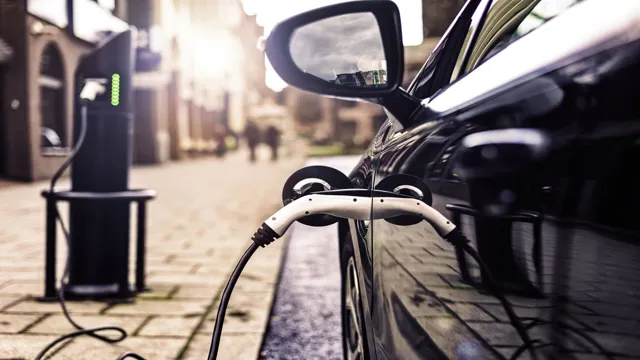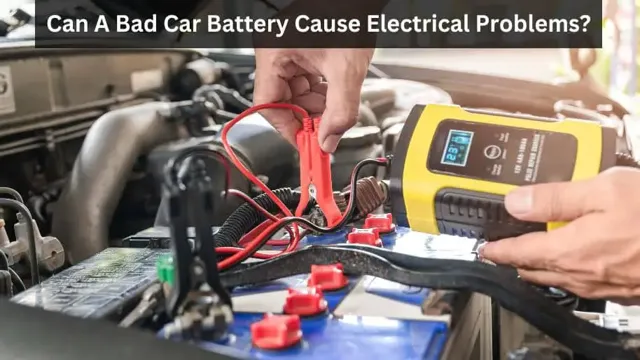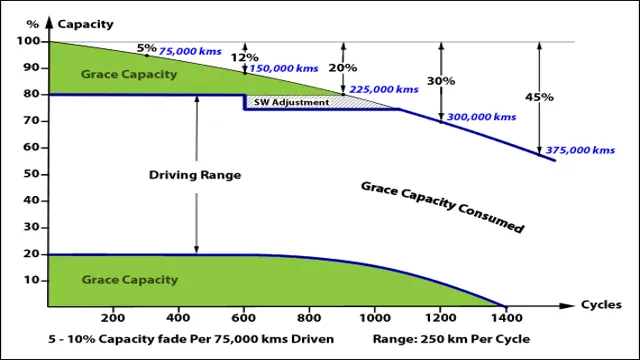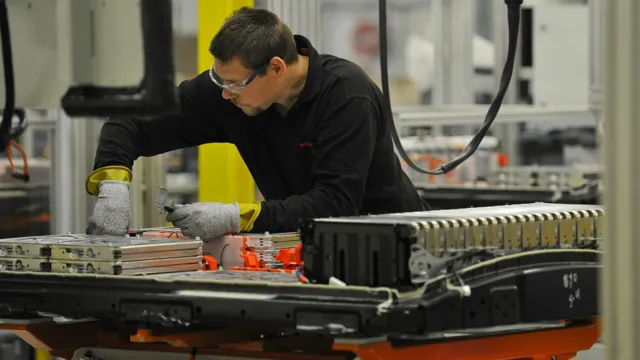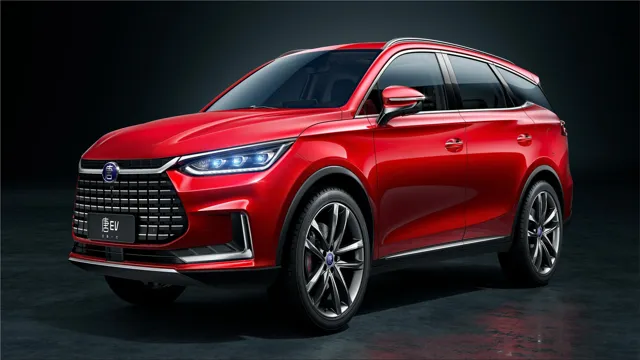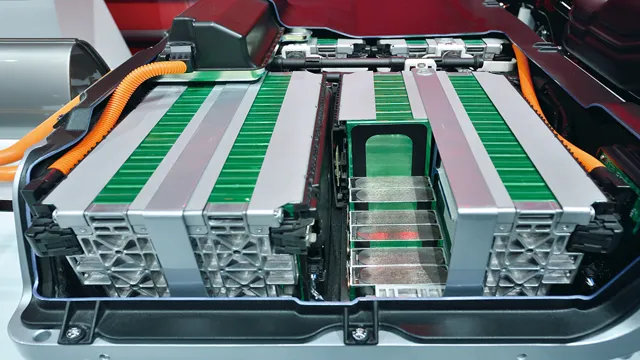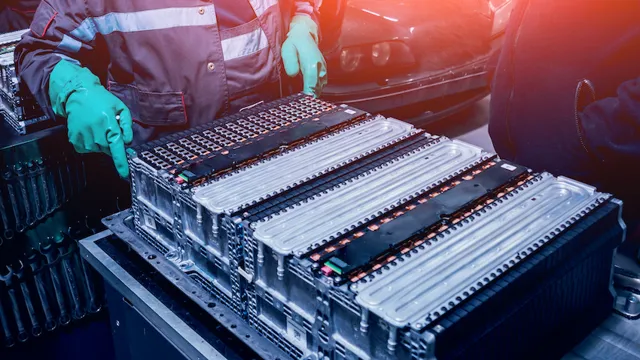Powering India’s Green Revolution: Exploring the Latest Electric Car Battery Capacity Innovations
As the world shifts towards a greener and sustainable future, electric vehicles have undoubtedly become the talk of the town. And when it comes to electric cars in India, the first thing that pops up is battery capacity. With battery technology evolving at a fast pace, manufacturers are striving to develop electric cars that have longer ranges, shorter charging times and are cost-effective.
But what’s the current status of battery capacity of electric cars in India? How does India compare to other countries in this regard? Let’s dive deeper and find out.
Overview of Electric Cars in India
The electric car market is rapidly growing in India, with more and more people opting for eco-friendly vehicles. However, one of the major concerns for buyers is the battery capacity of electric cars. Currently, most electric cars in India have a battery capacity of around 30-40 kWh, which provides a range of 150-200 km on a single charge.
Although this may be sufficient for city commuting, range anxiety may be a concern for those who frequently travel long distances. However, several car manufacturers are continuously working towards improving the battery technology, resulting in higher battery capacities and longer ranges. In fact, some recent electric car models in India have a battery capacity of up to 95 kWh, providing a range of 450-500 km on a single charge.
As battery technology continues to evolve, it is expected that we may see even higher battery capacities and longer ranges in the near future. Despite the current limitations, the growing adoption of electric cars in India is a positive step towards reducing greenhouse gas emissions and tackling air pollution.
Current State of Electric Cars
Electric Cars in India Electric cars have become more popular in recent years, and India is no exception to this trend. The Indian government has been encouraging the use of electric cars by offering incentives to buyers and easing regulations on electric vehicle manufacturers. The country has set an ambitious target of having 30% of its vehicles on the road powered by electricity by 2030.
However, the electric car market in India is still in its nascent stage, with only a few models available in the market. Consumers also face challenges such as high prices, limited charging infrastructure, and range anxiety. But with lower operating costs and the long-term benefits of reducing carbon emissions, electric cars are a viable option for those who want to help the environment while reducing their transportation costs.
As the demand for more electric cars increases in India, the government and the private sector are working towards improving infrastructure and reducing costs to make electric cars more accessible to the general public.
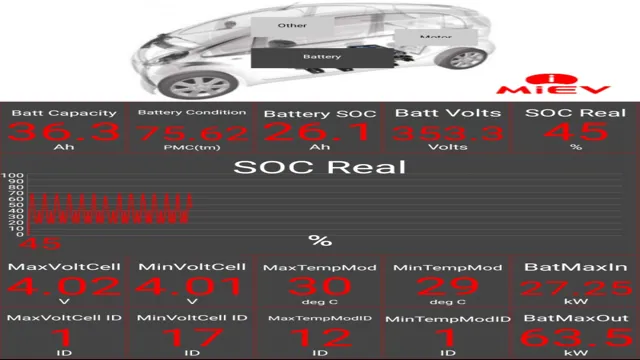
Popular Electric Cars in India
Electric cars have been gaining popularity in India due to their eco-friendly nature and cost-effectiveness in the long run. As the government is encouraging the adoption of green mobility with various incentives, more and more people are opting for electric vehicles. Some popular electric cars in India include the Tata Nexon EV, MG ZS EV, and Hyundai Kona Electric.
The Tata Nexon EV, which features a range of 312 km on a single charge, has received a positive response from customers owing to its spacious cabin and safety features. The MG ZS EV, with a range of 419 km, has a fast charging option, making it a convenient option for long-distance travel. The Hyundai Kona Electric, with its sporty design and 452 km range, is a popular choice for those seeking a premium electric SUV.
Overall, with the increasing trend towards sustainable living, electric cars are becoming a viable option for a greener tomorrow in India.
Battery Capacity of Electric Cars in India
When it comes to electric cars, the battery capacity plays a crucial role in determining the range and performance. In India, the battery capacity of electric cars varies from model to model, but there is a clear trend towards increasing capacity. The most popular electric cars in India, such as the Tata Nexon EV and MG ZS EV, have battery capacities of around 30-45 kWh, which can provide a range of up to 300 km on a single charge.
However, some luxury models such as the Mercedes EQC and Audi e-tron have larger battery capacities of around 80 kWh, providing a range of up to 400 km. It is worth noting that battery capacity is not the only factor that determines the range and performance of electric cars, as factors such as weight, aerodynamics, and driving style also play a role. Despite this, it is clear that electric cars with higher battery capacities make a significant difference in terms of range and performance, making them more practical and attractive for everyday use.
Comparison of Battery Capacity Among Electric Cars
Electric cars are the future of transportation and their popularity is increasing day by day. Battery capacity is one of the most important parameters while considering an electric car. In India, there are numerous options available with varying battery capacities.
The Tata Nexon EV has the highest battery capacity of 30.2 kWh and a claimed driving range of 312 km. The Mahindra eVerito comes in second place with a capacity of 2
2 kWh and a range of 140 km. Other electric cars like the MG ZS EV, Hyundai Kona Electric, and Mercedes-Benz EQC also offer impressive battery capacities and driving ranges. It is important to note that although the capacity of the battery is crucial, driving range also depends on various factors like driving style, traffic conditions, terrain, and weather.
So, one should choose an electric car based on their needs and usage patterns.
Impact of Battery Capacity on Performance and Range
When it comes to electric cars in India, the battery capacity plays a crucial role in determining the performance and range. The battery capacity is measured in kWh (kilowatt-hours) and indicates the amount of energy the battery can store. Generally, electric cars with higher battery capacities offer better range and performance compared to those with lower capacities.
For instance, an electric car with a 40-kWh battery can offer a range of around 200 km, while a car with a 64-kWh battery can provide a range of up to 400 km. The battery capacity also affects the acceleration and top speed of the vehicle. A larger battery can provide more power to the electric motor, resulting in quicker acceleration and higher top speeds.
So, while choosing an electric car in India, it is essential to consider the battery capacity and its impact on the vehicle’s performance and range.
Advancements in Battery Technology for Electric Cars
Battery technology for electric cars has been one of the most dynamic areas of development in recent years, and India is certainly not lagging behind in this regard. As a country that is rapidly embracing green technologies, Indian automakers have made strides in improving the battery capacity of electric cars. Today, electric cars in India are capable of travelling up to 350 km on a single charge, which is a significant improvement from just a few years ago.
Major automobile manufacturers like Tata Motors, Mahindra & Mahindra, and MG Motor India have introduced electric cars with bigger and more efficient batteries, allowing them to offer higher performance, greater range, and faster charging times. With continued advancements in battery technology, it’s only a matter of time before electric cars become the norm in the country, paving the way for a cleaner, greener, and brighter tomorrow.
Future of Electric Cars in India
Electric car battery capacity in India has been a major concern for potential buyers. In recent years, there has been a surge in demand for electric vehicles in the country because of the government’s push towards cleaner energy. However, many buyers are hesitant to switch to electric cars due to their limited battery range.
Fortunately, there is some good news on the horizon. Car manufacturers are investing heavily in research and development of batteries with higher capacity and longer ranges. Tata Motors, for example, recently unveiled its Ziptron technology that promises up to 300 miles on a single charge.
Companies such as Mahindra Electric and MG Motor are also working on improving their electric car batteries. As the technology continues to advance and become more affordable, we can expect to see a wider adoption of electric cars in India. The government has also announced plans to set up charging stations at regular intervals along highways, which will address one of the major concerns of EV owners.
While we still have a long way to go, the future is looking bright for electric cars in India.
Projected Growth and Demand for Electric Cars
The future of electric cars in India is promising, with a projected growth and increasing demand in the coming years. As people become more environmentally conscious, the idea of owning an electric car is becoming more appealing. The Indian government is also pushing for the adoption of electric cars by providing subsidies and incentives to encourage people to switch to greener transportation.
In addition, the government has set a target for 30% of all new vehicles sold in India to be electric by 2030. With this target, there is expected to be a burst in the market for electric cars, leading to more options for consumers to choose from. However, there are still challenges that need to be addressed, such as the lack of charging infrastructure and high upfront costs of electric cars.
But with innovative solutions and continued support, the future looks bright for electric cars in India.
Government Initiatives and Incentives for Electric Cars
As India gears up for a sustainable and eco-friendly future, the demand for electric cars continues to grow. The government has taken various initiatives and provided incentives to promote the use of electric vehicles. The Faster Adoption and Manufacturing of Electric Vehicles (FAME) scheme provide financial incentives for the purchase of electric vehicles while also funding the development of charging infrastructure.
Additionally, the government has also announced plans to mandate electric-only vehicles for all three-wheelers by 2023 and for all two-wheelers up to 150cc by 202 The future of electric cars in India seems promising with several major car companies, including Mahindra, Tata, and Hyundai, launching electric models in the market. While electric cars are still more expensive than their petrol or diesel counterparts in India, this gap is expected to decrease as the demand for electric cars increases and the production scales up.
With lower running costs, reduced emissions, and a cleaner environment, electric cars are the way forward in India. Soon, we might see a time where electric cars become more affordable to the masses, and charging infrastructure becomes as convenient as petrol pumps. It’s an exciting future that’s worth looking forward to.
Conclusion: Electric Car Battery Capacity in India
Just like how our smartphones need to be charged every day, electric cars require regular charging to keep going. But with the increasing availability of charging stations and advancements in battery technology, India is on its way to becoming a frontrunner in the electric vehicle market. With its ever-expanding battery capacity and sustainable infrastructure, driving an electric car in India may soon become the norm.
So put your foot on the pedal, charge up your car, and drive towards a greener future – one kilometer at a time.”
FAQs
What is the average battery capacity of electric cars in India?
The average battery capacity of electric cars in India ranges from 25 kWh to 50 kWh, depending on the make and model of the vehicle.
How far can an electric car with a 50 kWh battery capacity go on a single charge in India?
An electric car with a 50 kWh battery capacity can travel up to 350 km on a single charge in India, depending on various factors such as driving style, terrain, and weather conditions.
What is the cost of replacing the battery of an electric car in India?
The cost of replacing the battery of an electric car in India varies depending on the make and model of the vehicle. It can range from ₹1 lakh to ₹5 lakh or more.
Can electric car batteries be recycled in India?
Yes, electric car batteries can be recycled in India. Several companies and organizations are working on establishing a battery recycling infrastructure in India to reuse the valuable materials in the batteries and minimize their environmental impact.
